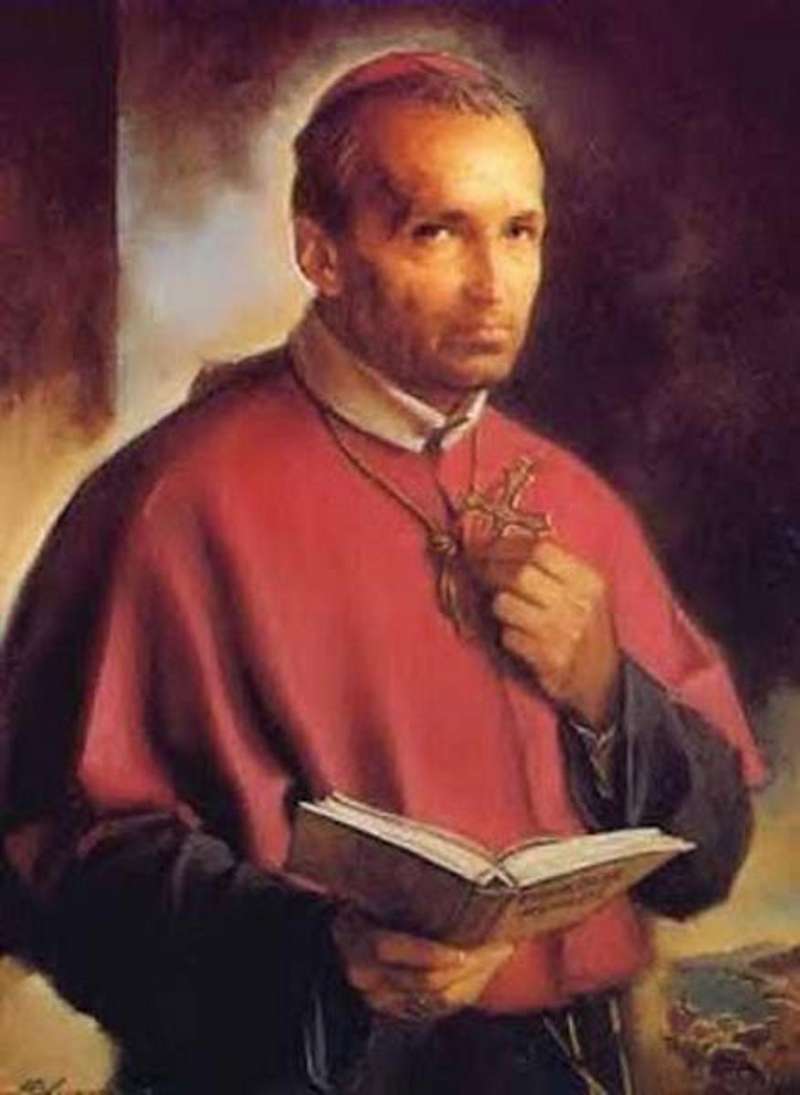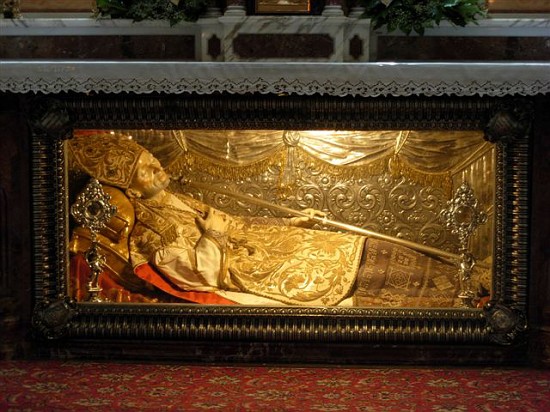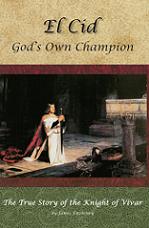Saint Alphonsus Liguori

St. Alphonsus Liguori: A Saint for Our Times
St. Alphonsus Liguori was a remarkable man who lived a remarkable life. He was a lawyer, priest, bishop, founder of a religious order, writer, musician, artist, theologian, poet and saint. He was also a man of deep compassion, humility, and zeal for the salvation of souls. He faced many trials and challenges in his life, but he never lost his trust in God’s mercy and love. He is a saint for our times, who can inspire us to live our faith with joy and courage.
His Early Life
St. Alphonsus was born on September 27, 1696, in Marianella, near Naples, Italy. He was the eldest of seven children of Giuseppe Liguori, a naval officer and nobleman, and Anna Maria Cavalieri, a devout woman of noble descent. He was baptized two days after his birth with the name Alphonsus Mary Anthony John Cosmas Damian Michael Gaspard de’ Liguori.
He was a child prodigy who excelled in everything he did. He learned to ride and fence at an early age, but he also had a keen interest in music and art. He composed his first musical piece at the age of nine and painted several portraits of his family members. He also had a great love for learning and studied languages, literature, philosophy, and theology.
He entered the University of Naples at the age of 12 and graduated with doctorates in civil and canon law at the age of 16. He then began to practice law at the Neapolitan courts under the guidance of his father, who wanted him to have a successful career and marry into a wealthy family.
His Conversion
St. Alphonsus had lived a comfortable and worldly life as a lawyer, but he also had a deep sense of God’s presence and a desire to serve him. He attended daily Mass and prayed the rosary regularly. He also practiced works of charity and visited the sick and the poor.
However, St. Alphonsus also faced many temptations and dangers in his profession and society. He was exposed to corruption, injustice, violence, and immorality. He admitted that he sometimes fell into vanity, pride, anger, and lust. He later wrote: “I was living in the midst of the world without God; I followed its maxims; I sought only its esteem; I loved only its pleasures.”
His life changed dramatically when he lost an important case in 1723. He had spent eight years as a lawyer, and having never lost a case, was confident that he would win this one also. However, Alphonsus made a mistake that cost him the case and his reputation. He felt humiliated and betrayed by his colleagues and friends. He realized that all his worldly pursuits were vain and empty.
Alphonsus heard God’s voice in his heart saying: “Leave the world and give yourself to me.” He decided to abandon his career and follow God’s call. He faced strong opposition from his father, who tried to persuade him to change his mind. He also had to overcome his own doubts and fears. But he persevered in his decision and entered the seminary in 1723.
His Priesthood
St. Alphonsus was ordained a priest on December 21, 1726, at the age of 30. He dedicated himself to preaching the gospel to the poor and the most abandoned souls. He traveled throughout Naples and its surroundings, giving missions, retreats, catechesis, confessions, and spiritual direction. He also wrote many books and pamphlets to spread the faith and combat heresies.
He had a special devotion to the Blessed Virgin Mary and encouraged others to love her as their mother. He composed many hymns in her honor, such as “O Purest of Creatures” and “Hail Holy Queen”. He also wrote one of his most famous works: “The Glories of Mary”, which is a collection of meditations on her virtues and privileges.
He had a great compassion for sinners and sought to bring them back to God’s grace. He taught that God is infinitely merciful and loving towards those who repent sincerely. He said: “God does not deal with us according to our sins; if he did so we should all be lost.” He also said: “The greatest saints are those who have sinned the most and repented the most.”
He was known for his gentleness and kindness in the confessional. He spent hours listening to the penitents and giving them advice and encouragement. He said: “The confessor must be a father, a physician, and a teacher.” He also said: “The most important thing in the confessional is to win the heart of the sinner.”
His Foundation
St. Alphonsus felt a strong call to found a new religious congregation that would continue his apostolic work among the poor and the most abandoned. He was inspired by the example of St. Francis de Sales, who founded the Order of the Visitation for women, and St. Vincent de Paul, who founded the Congregation of the Mission for men.
He met with some like-minded priests and laymen who shared his vision and zeal. They formed a small community in Scala, near Naples, in 1732. They called themselves the Congregation of the Most Holy Redeemer, or the Redemptorists. They took simple vows of poverty, chastity, and obedience, and dedicated themselves to preaching the gospel to the rural poor.
They faced many difficulties and hardships in their mission. They had to endure poverty, hunger, sickness, persecution, and opposition from some bishops and clergy. They also had to deal with internal conflicts and divisions within their congregation. But they also experienced many graces and blessings from God. They saw many conversions and miracles among the people they served.
St. Alphonsus was elected as the first superior general of the Redemptorists in 1747. He governed the congregation with wisdom and prudence, while also continuing his apostolic work as a preacher and writer. He also composed many hymns and musical pieces for the liturgy and devotion. He is considered one of the greatest composers of sacred music in Italy.
His Episcopate
St. Alphonsus was appointed as the bishop of Sant’Agata dei Goti, a small diocese near Naples, by Pope Clement XIII in 1762. He accepted this office with reluctance and humility, saying: “I am a poor old man, infirm and useless.” He was consecrated as a bishop on June 20, 1762.
He devoted himself to reforming his diocese according to the spirit of the Council of Trent. He visited all the parishes and convents, preaching, teaching, administering sacraments, confirming children, blessing marriages, ordaining priests, and establishing schools and charitable institutions. He also reformed the clergy and religious, enforcing discipline and promoting holiness.
St. Alphonsus was especially concerned about the moral formation of his flock. He wrote his most famous work: “Moral Theology”, which is a comprehensive treatise on moral issues and cases of conscience. He based his moral theology on Scripture, tradition, reason, and common sense. He followed a moderate approach that avoided both rigorism and laxism.
He also faced many trials and tribulations as a bishop. He suffered from various illnesses and infirmities that affected his eyesight, hearing, speech, mobility, and memory. He was also involved in several controversies and conflicts with civil authorities, other bishops, and even some members of his own congregation. He frequently loaded those who offended him with benefits, saying, "When charity is patient, it is also kind; if we are really anxious to win over those who do us harm to Jesus Christ, we must do them good."
His Last Years
St. Alphonsus resigned from his episcopal office in 1775 due to his poor health and old age. He returned to his Redemptorist community in Pagani, where he spent his last years in prayer and penance. He also continued to write books and letters until he lost his ability to do so.
He endured many physical pains and spiritual trials in his final years. He suffered from rheumatism that crippled his body and made him unable to move or celebrate Mass. He also suffered from scruples that tormented his mind and made him doubt his salvation.
St. Alphonsus died on August 1, 1787, at the age of 90. He was canonized by Pope Gregory XVI in 1839 and declared a Doctor of the Church by Pope Pius IX in 1871. He is the patron saint of moral theologians, confessors, arthritics, lawyers, vocations, writers, musicians, artists, poets, and philosophers.
His Legacy
St. Alphonsus Liguori left behind a rich legacy of holiness and wisdom for the Church and the world. He is one of the most influential saints in history who has inspired countless people to love God more deeply and serve him more faithfully.
His writings are among the most widely read and translated in Catholic literature. They cover various topics such as spirituality, theology, morality, devotion, liturgy, art, and music.
His congregation continues to spread his charism throughout the world. The Redemptorists are present in more than 80 countries with over 5,000 members who serve in various ministries.
St. Alphonsus Liguori was a saint for our times, who can inspire us to live our faith with joy and courage. He was a man of many talents and virtues, who used them all for the glory of God and the good of souls. He was a man of compassion and mercy, who reached out to the poor and the most abandoned. He was a man of wisdom and prudence, who taught the truth with clarity and charity. He was a man of prayer and penance, who united himself to Christ in his sufferings and joys. He was a man of love and zeal, who gave himself completely to God and his neighbor.
His example challenges us to follow Christ with passion and joy. He teaches us to trust in God’s mercy. Let us ask St. Alphonsus to intercede for us and help us to follow his example that we may grow in holiness.

(Photo by Bocachete - Own work, Public Domain, https://commons.wikimedia.org/w/index.php?curid=7351747)
Now Available!!
Pelayo's resistance initiated the nearly 800-year-long Reconquista to take back his country from the ruthless invader who had conquered his homeland and sought to erase his culture and his faith. His actions would lay the foundations of a Kingdom for Christ that would eventually reach around the world and spread the Catholic faith to millions of souls. Read more...
Please help us continue to bring high quality books to our readers at the lowest possible price! Click the link below! Thank you!
Now Available!
Catholic Vitality Publications presents . . .Brand new by
James Fitzhenry
Now in paperback!
Battles - Honor - Miracles! This
book is filled with amazing stories of little-known Catholic heroes presenting
spectacles of bravery and valor never exceeded in all the annals of history. read more. . .
Now Available for $24.95
Also available:
Catholic Vitality Publications
Roman Catholic books currently published by Catholic Vitality Publications:
El Cid, God's Own Champion
-the amazing true story of the life of Rodrigo Diaz, El Cid!
Available for only $22.95
St. Fernando III
A Kingdom for Christ
- King St. Fernando III, born 100
years to the month after the death of
the Cid. His life was filled with miracles
and many conquests!
Available now for $26.95
Discounts available for bulk
orders and for bookstore
retail sales! Just contact us




